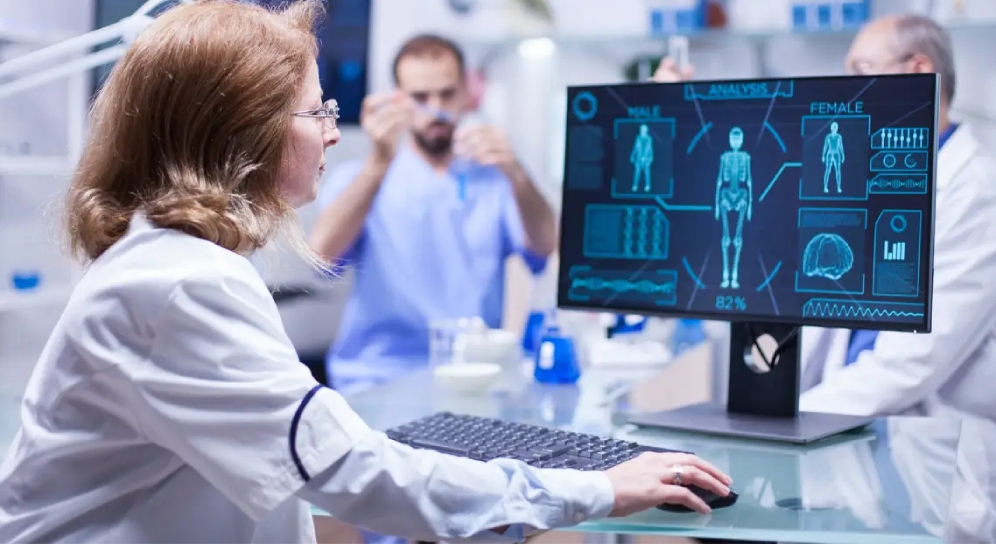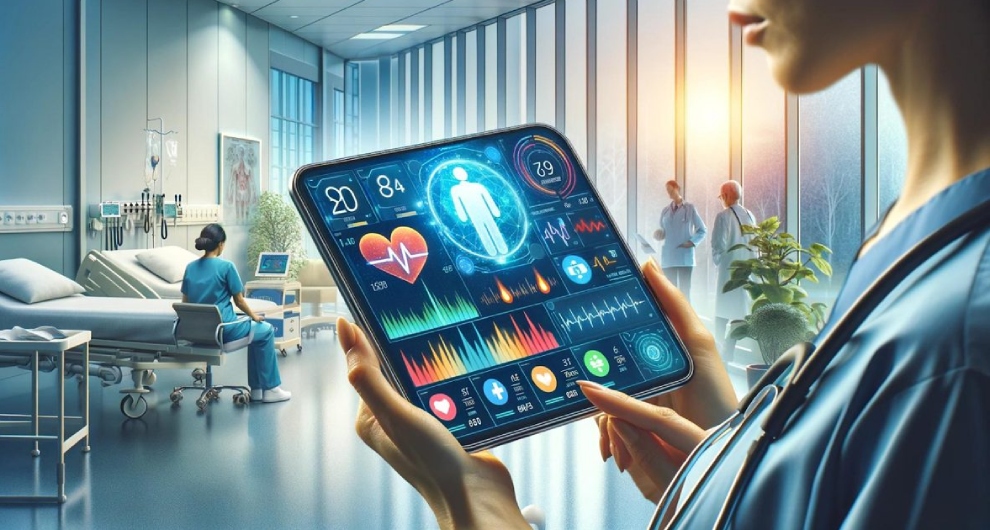The demand for continuous care of elderly individuals and patients with chronic conditions is rapidly increasing, while healthcare resources remain limited and at-home supervision faces numerous challenges. Leveraging an AI-powered platform connected to IoT devices, we provide a breakthrough solution tailored to the ageing population, helping ease the burden on healthcare systems, enhance quality of life, and foster independence for the elderly.

Challenges: Burden of Care and Resource Shortages
With the global trend of population ageing and a growing number of chronic disease patients, both families and healthcare systems are under immense pressure to provide continuous care:
- Need for continuous care & medical system overload: Elderly individuals and chronic patients often require regular monitoring and are at high risk of emergencies. However, medical personnel (doctors, nurses) are in short supply, leading to hospital overcrowding and limited home care support.
- Difficulties with home supervision: Elderly people living alone or patients managing conditions at home may experience incidents (falls, strokes, sudden health deterioration) that go unnoticed, resulting in serious consequences. It is often unfeasible for family members to provide constant supervision.
- High healthcare costs: Frequent hospital visits or hiring professional home caregivers are expensive, placing a financial burden on families and health insurance systems.
- Reduced quality of life and independence: Elderly individuals may lose confidence and independence when they feel reliant on others for care, negatively impacting their mental well-being.
- Lack of continuous health data: Health metrics are typically captured only during occasional check-ups, providing an incomplete view of the patient’s ongoing condition.
Real-life example: An elderly person living alone falls during the night and is not discovered until the next morning, by which time their condition has worsened. In another case, a diabetic patient experiences fluctuating blood sugar levels that go undetected, resulting in complications requiring emergency hospitalisation.
Breakthrough AI Solution: A “Smart Health Companion” at Home
Our AI-powered remote health monitoring platform acts as a “smart health companion”, connecting to IoT devices to continuously collect and analyse health data, generate intelligent alerts, and deliver personalised advice. It addresses the challenges of an ageing population, reduces the load on medical systems, and significantly enhances elderly independence and quality of life.
How the Solution Works
Our system forms a non-invasive, continuous care network that ensures safety and peace of mind for both patients and their families:
- IoT Connectivity & Continuous Health Data Collection
The platform seamlessly integrates with a range of smart medical devices and wearables at home, including:
- Smartwatches/fitness bands: Monitor heart rate, sleep, activity levels, calorie expenditure.
- Smart blood pressure monitors: Track blood pressure over time.
- Smart glucometers: Monitor blood glucose levels.
- Smart scales: Record body weight changes.
- Fall detection sensors: Identify unexpected falls.
- Non-invasive monitoring cameras: Detect abnormal behaviours while preserving privacy.
All data is continuously and automatically collected and transmitted to the AI platform via internet connectivity.
- AI-Powered Health Data Analysis
Machine learning algorithms and predictive analytics process the data to identify risks and patterns:
- Anomaly detection: Detects sudden changes or unusual trends in health metrics (e.g. irregular heart rate, sharp drops/rises in blood pressure, changes in sleep or diet patterns).
- Predictive health risk assessment: Using historical and real-time data, the AI forecasts potential complications or emergency events (e.g. stroke risk, diabetic relapse).
- Medication and treatment adherence monitoring: Tracks whether the patient is following prescribed medication and lifestyle routines, sending reminders when needed.
- Automated Intelligent Alerts
If any abnormal sign or emergency situation is detected (e.g. a fall, vital sign out of range, stroke indicators), the system immediately sends alerts to family members, doctors, or emergency services via multiple channels (SMS, mobile app, automated calls).
- Personalised Health Advice
The AI offers tailored guidance on diet, exercise, chronic condition management, and medication reminders, empowering patients to take an active role in their daily healthcare.
- Comprehensive Health Reports
The system generates regular health reports with trends, events, and summaries, making it easier for doctors to monitor patient progress and adjust treatment plans accordingly.

Core Technologies and Key Advantages
Our solution is built on a robust technology stack, ensuring accuracy, reliability, and ease of use:
- IoT (Internet of Things): Seamlessly connects and manages a wide array of medical devices and sensors, enabling continuous and dependable data collection.
- Machine Learning (Anomaly Detection & Predictive Analytics): Trained models identify health anomalies and assess future risks using biometric and behavioural data.
- Cloud Computing (AWS, Azure, GCP): Provides scalable and secure infrastructure for storing and processing large volumes of health data with remote accessibility.
- Big Data Processing: Handles and analyses high-volume data from thousands of patients and devices in real time.
- Natural Language Processing (NLP): Interprets health logs or textual notes to generate user-friendly recommendations.
- User-Friendly Mobile App Interface: Provides an intuitive interface for patients, caregivers, and doctors to view data, receive alerts, and interact with the system.
Measurable Results: Better Health, Greater Independence
With continuous monitoring and intelligent alerts, our AI solution has helped partners achieve significant outcomes:
- 20–30% reduction in unnecessary hospital readmissions: Early detection and timely intervention help prevent complications that would otherwise require hospital care.
- 40% faster emergency response times: Rapid detection of incidents such as falls or strokes enables timely medical assistance, minimising harm.
- Improved quality of life and independence: Elderly users feel safer and more confident living at home, reducing stress for both patients and their families.
- Eased burden on the healthcare system: Reduces hospital congestion by shifting part of the care process to the home with AI support.
- Lowered healthcare costs: Prevents expensive emergency treatments and reduces reliance on in-home care personnel.
This solution is not just a piece of technology — it is a commitment to healthier, safer, and more independent living for elderly individuals and patients with chronic conditions.







